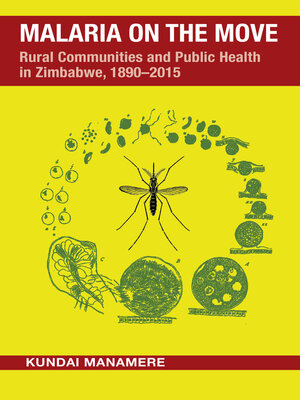Malaria on the Move
ebook ∣ Rural Communities and Public Health in Zimbabwe, 1890–2015 · Perspectives on Global Health
By Kundai Manamere

Sign up to save your library
With an OverDrive account, you can save your favorite libraries for at-a-glance information about availability. Find out more about OverDrive accounts.
Find this title in Libby, the library reading app by OverDrive.



Search for a digital library with this title
Title found at these libraries:
| Library Name | Distance |
|---|---|
| Loading... |
Malaria on the Move explores the socioeconomic aspects of endemic malaria in the southeastern lowveld of Zimbabwe. The book provides a historical analysis of malaria control and eradication programs in Rhodesia and independent Zimbabwe from the late nineteenth century to 2015. Kundai Manamere draws connections between malaria epidemiology and human mobility relating to large- and small-scale farming, labor migration, colonial displacement, war, and rural-to-urban movements. She examines how circular labor migration and rural travel influence the risk of malaria for individuals and communities and shows how migration and travel have spread the disease and impeded control efforts. More importantly, the book demonstrates that the need to travel for work is an indicator of a local hierarchy of priorities. It reaffirms the urgent need for partners in malaria control to consider local socioeconomic factors in the design and implementation of intervention programs. The inclusion of local contexts, perspectives, and voices in formulating national and global public health policies and interventions is critical to addressing public noncooperation.
To date, biomedical studies of malaria outnumber socioeconomic and political studies of the disease. Manamere advocates for a multipronged approach that goes beyond standard scientific research methods. Her approach incorporates how socioeconomic considerations of recipient communities influence malaria epidemiology, local perceptions of the disease, and responses to interventions. This context is particularly important for understanding why malaria has remained a global health challenge and why so many interventions have failed. Scientifically, malaria is a disease of the landscape, and its ecological complexity poses challenges to its eradication. Yet biological and ecological landscapes are not exclusive factors in the spread of disease; as Manamere demonstrates, the socioeconomic environment is equally important.







